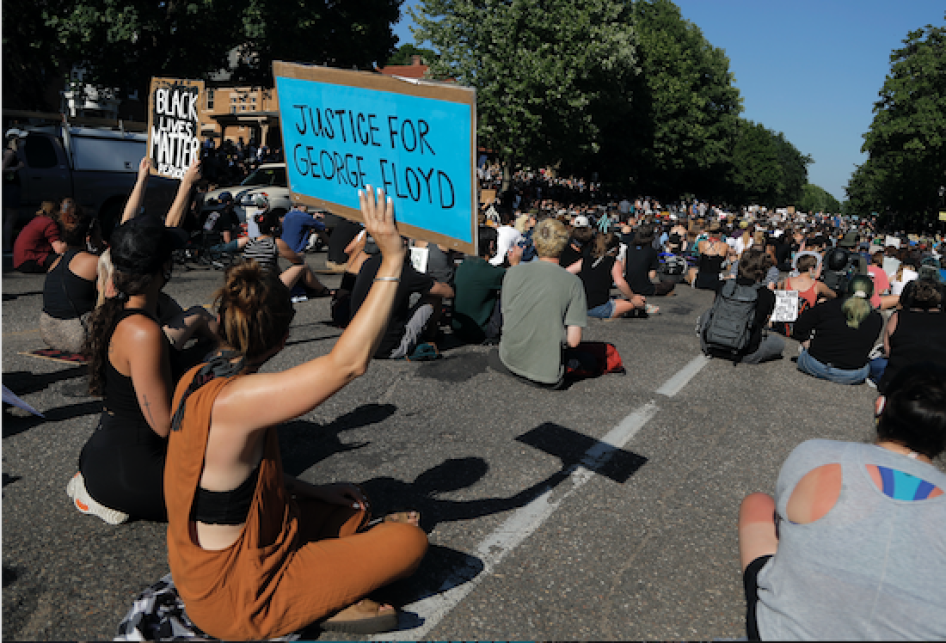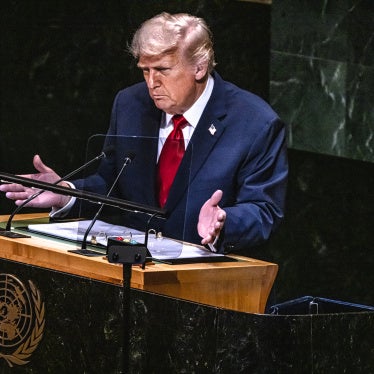Black Lives Matter. That is the cry that has inspired protests around the world.
George Floyd’s death, part of a long history of police killings of Black people in the United States, usually with little or no accountability, has rightly triggered global outrage. People around the world are marching against pervasive racism and police violence, carrying banners reading “I can’t breathe” and “defund the police.” Today’s debate brings that spirit of urgency to the United Nations, while also acknowledging that many protesters have had their rights trampled on by police, even as they stood up to police brutality.
Black Lives Matter. That is also the message at the heart of the African Group resolution. Yet some states are seeking to strip all references to the United States from the resolution, which would transform it into an “all lives matter” text, and risk making it so vague as to be meaningless.
Estimates suggest that police in the US kill one thousand people, disproportionately Black, every year. Police in the US also use disproportionate force on Black people at vastly higher rates than on white people, including tasers, dog bites, batons, punches, and kicks. This excessive and disparate use of force is just one example of the unjustifiable systemic racism and abusive practices by law enforcement in the US.
We’ve found that the racial disparities in policing mirror entrenched racial disparities in almost all aspects of life: health, housing, education, employment, rates of arrest, criminal conviction. The Covid-19 pandemic has magnified these disparities, with Black people and people of color disproportionately affected.
These disparities are not accidental, but the result of systems rooted in racial discrimination dating back to the start of slavery in the US. To address them meaningfully requires long-term responses that address structural discrimination, as required under international human rights law. We call on the Council to urgently adopt a resolution that credibly addresses these serious and systemic human rights concerns, including by creating an independent international inquiry into issues of systemic racism and police violence in the US.
Black Lives Matter. We all heard the impassioned plea from the brother of George Floyd. You at the UN have the power to make a difference. How you use that power is up to you.
The world is watching.






